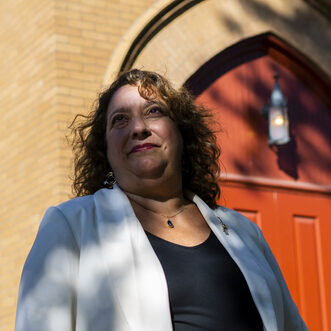
Rabbi Dr. Karen G Reiss Medwed, is Teaching Professor emerita at Northeastern University. She serves as Interim Vice Provost, Academic Affairs and Initiatives for HUC-JIR. Dr. Reiss Medwed's scholarship includes digital education, higher education leadership, and faith-based education. Dr. Reiss Medwed was ordained by JTS in 1995, and earned her Ph.D. from New York University's Steinhardt School of Education in Curriculum, Teaching and Learning with a specialization in Jewish education in 2005.


Exploring Judaism is a home for the Torah of Conservative Judaism, embracing the beauty and complexity of Judaism, and our personal search for meaning, learning, and connecting. There is always something to learn and explore.